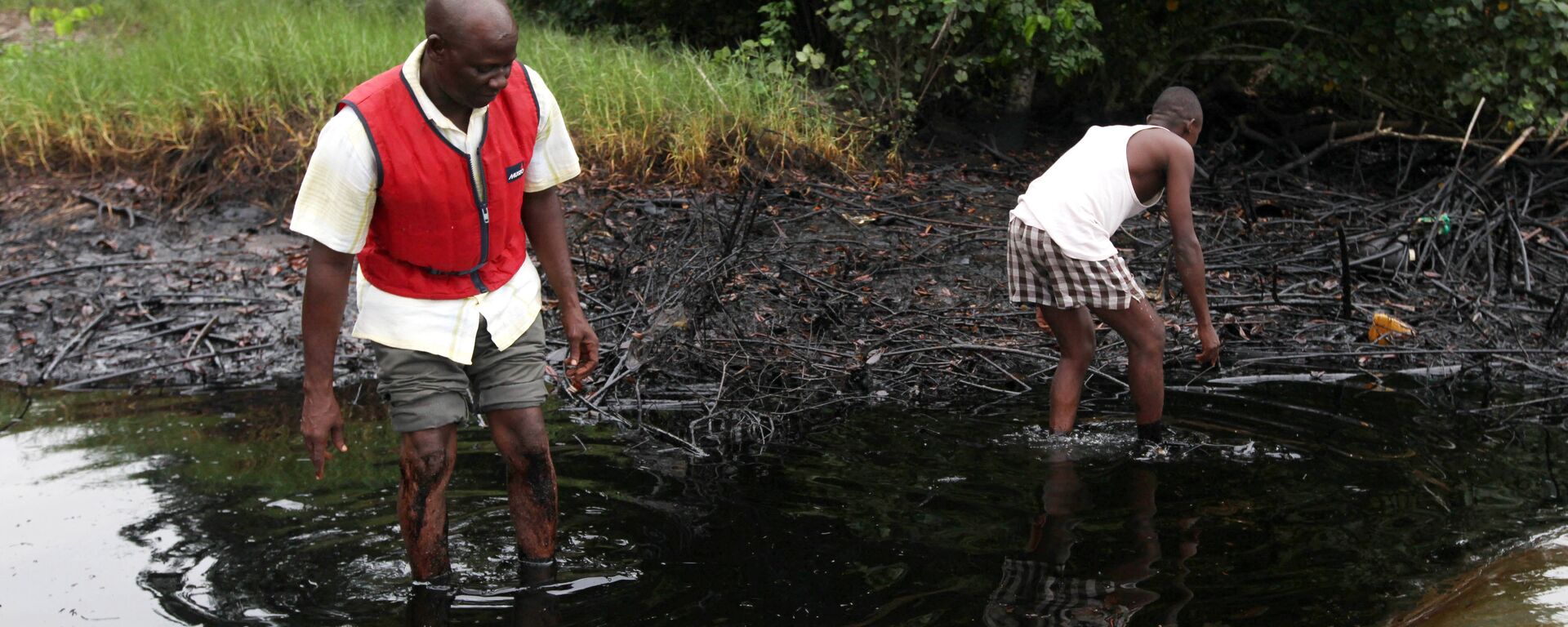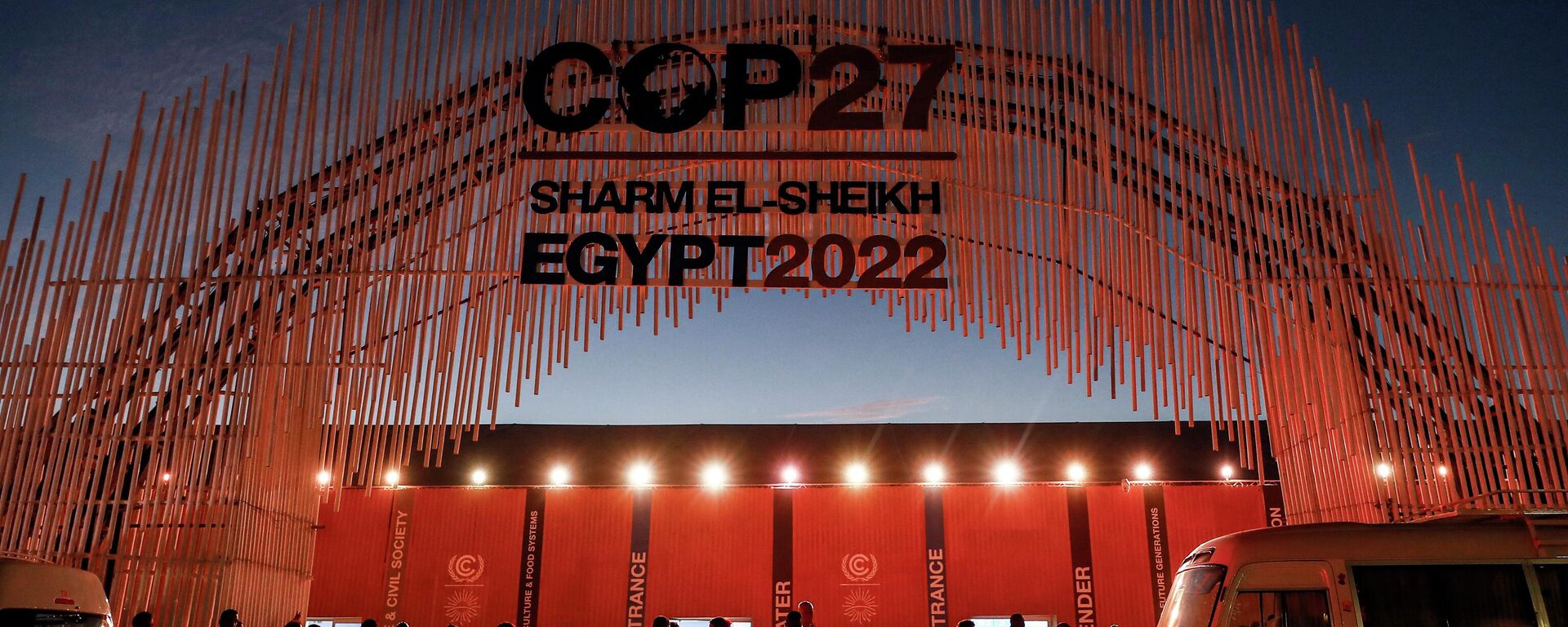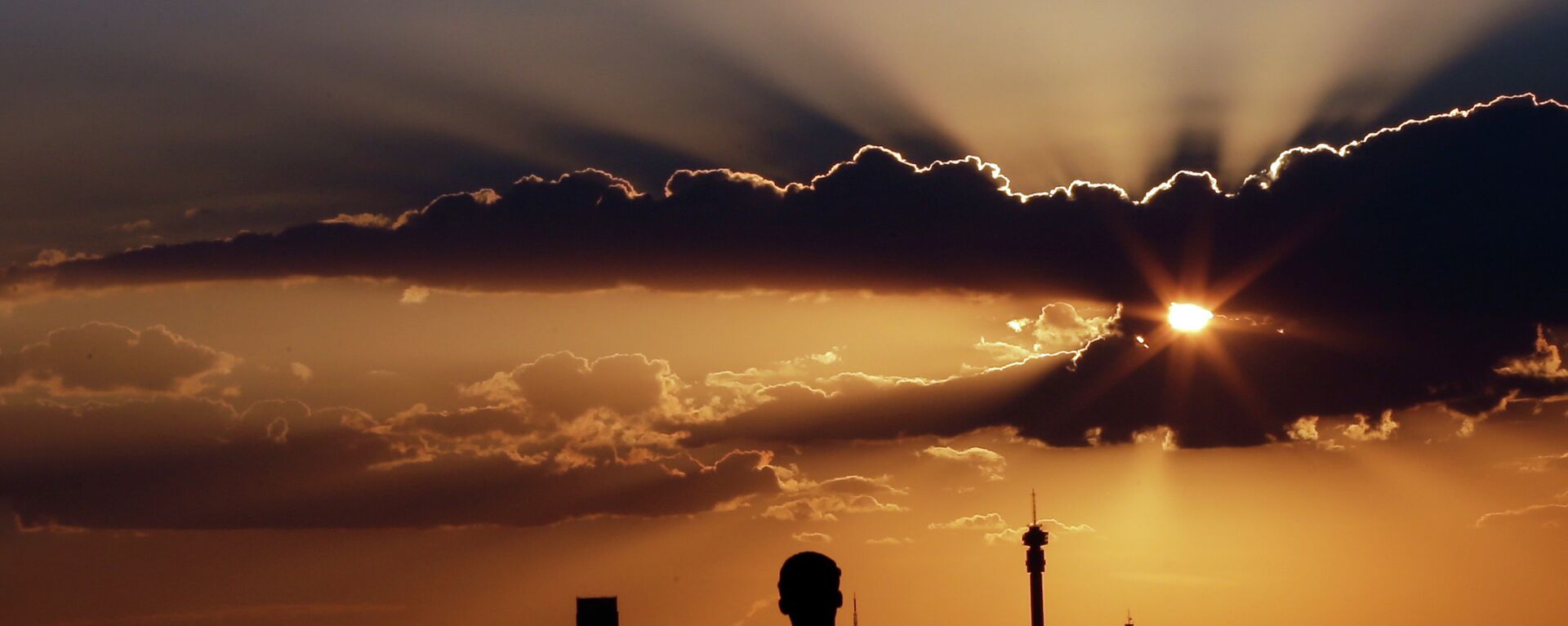Divide et Impera: What's Really Behind West's Repeated Failures to Lift Africa Up From Poverty?
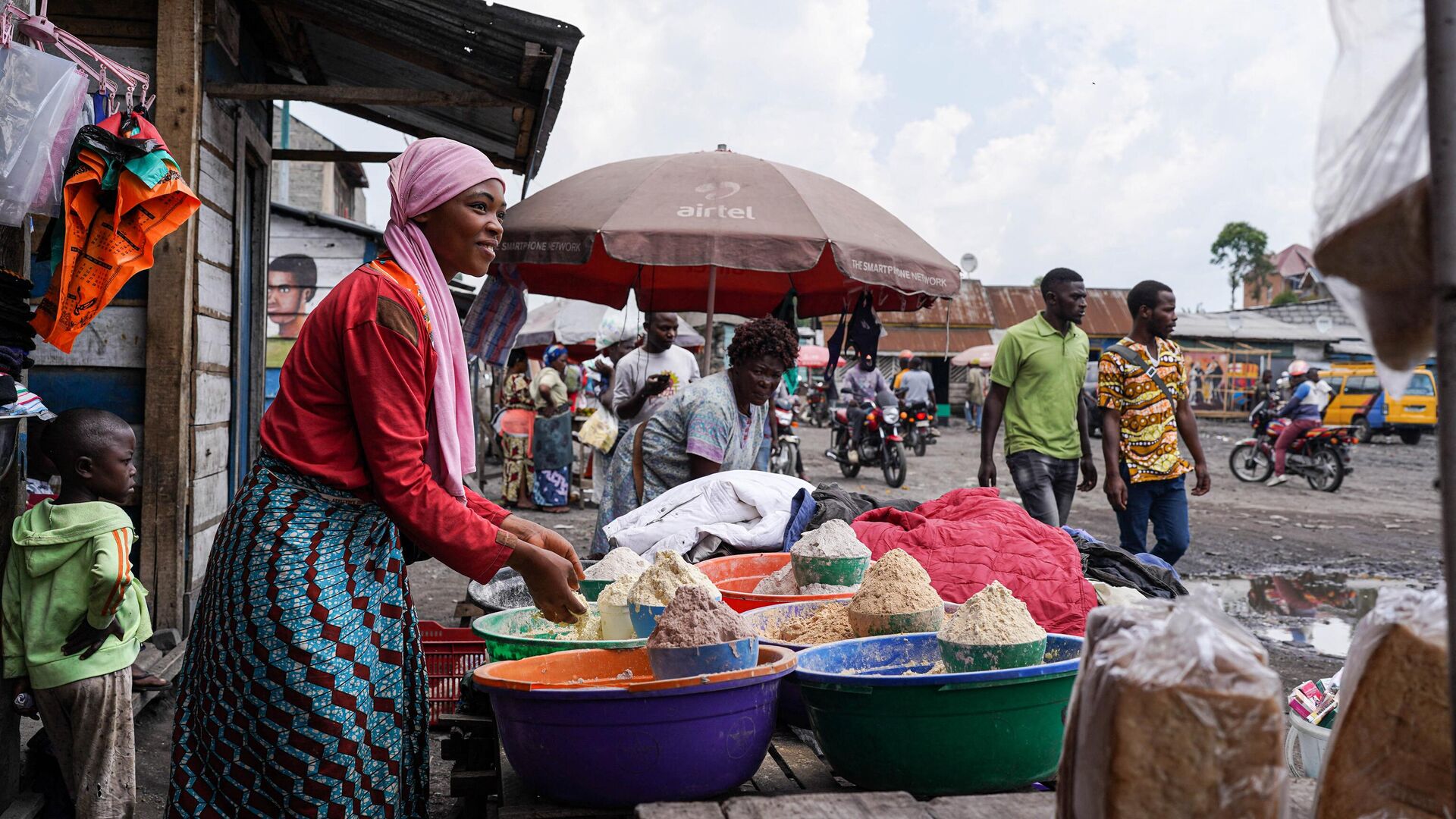
© AFP 2023 / GLODY MURHABAZI
Subscribe
Longread
Decades-long humanitarian projects and multibillion aid packages provided by Western governments, non-profits, donors, and activists to Africa have yet to lift the continent up from energy and water poverty, with some initiatives turning out to be a complete fiasco. What's really behind the West's repeated failures?
The United Nations Climate Change (COP27) summit, held in Egypt last month, came under criticism from African businessmen over the gathering's failure to sufficiently address the continent's energy poverty issue.
Sudanese-British entrepreneur Mo Ibrahim, who advocated for the use of natural gas in Africa as "transition fuel" prior to the COP27, argued in his recent op-ed that the Sharm el-Sheikh summit was not a success for Africans.
Even though at least 600 million people in Africa lack access to electricity and use "dirty" kerosene and coal for cooking, the COP27 did not provide any tangible solution other than "leapfrogging" fossil fuels to "green energy." Ibrahim argued that African countries could use their hydrocarbons to build sustainable infrastructure to distribute affordable electricity to their respective populations and beyond.
In September, African Union Chair Macky Sall stated during the 77th UN General Assembly that it would not be fair to prevent African countries from exploiting their oil and gas reserves. He specifically referred to the fact that the European Investment Bank (EIB) had stopped financing any fossil fuel projects in Africa, offering financing only to decarbonization projects and access to renewables.
Tanzania's Power System Master Plan
For example, Tanzania, which remains a poorly electrified African country, boasts an estimated 17 trillion cubic meters of natural gas reserves that could partially be used for generating electricity. The nation's leadership even worked out the Tanzania Power System Master plan, which relies heavily on natural gas.
Still, earlier this year, the Royal Norwegian Embassy in Dar es Salaam, Tanzania, called on the African country to shred its fossil fuels-based plan and switch to a "cleaner" mix of solar, hydro, wind, and geothermal energy. The report insists that Norway's "ambitious yet realistic plan for meeting 113 TWh of electricity demand in 2050" would allow Tanzania to "leapfrog fossil fuel and build a robust and sustainable power system."
If Norway's power project were adopted by Tanzania, the Nordic nation would benefit from its implementation and add it to its pile of "success stories." Around 90% of the electricity production in Norway comes from its hydropower plants, i.e. renewable sources. The Scandinavian country's topography lends itself perfectly to hydropower development due to its high mountain plateaus, abundant natural lakes and steep valleys and fjords.
But that's not the case for Tanzania, which is vulnerable to droughts and other climate extremes. This year, droughts crippled the African country's hydropower: in September 2022, the state-run electricity supply company, Tanesco, reported blackouts in 14 regions connected to the national grid.
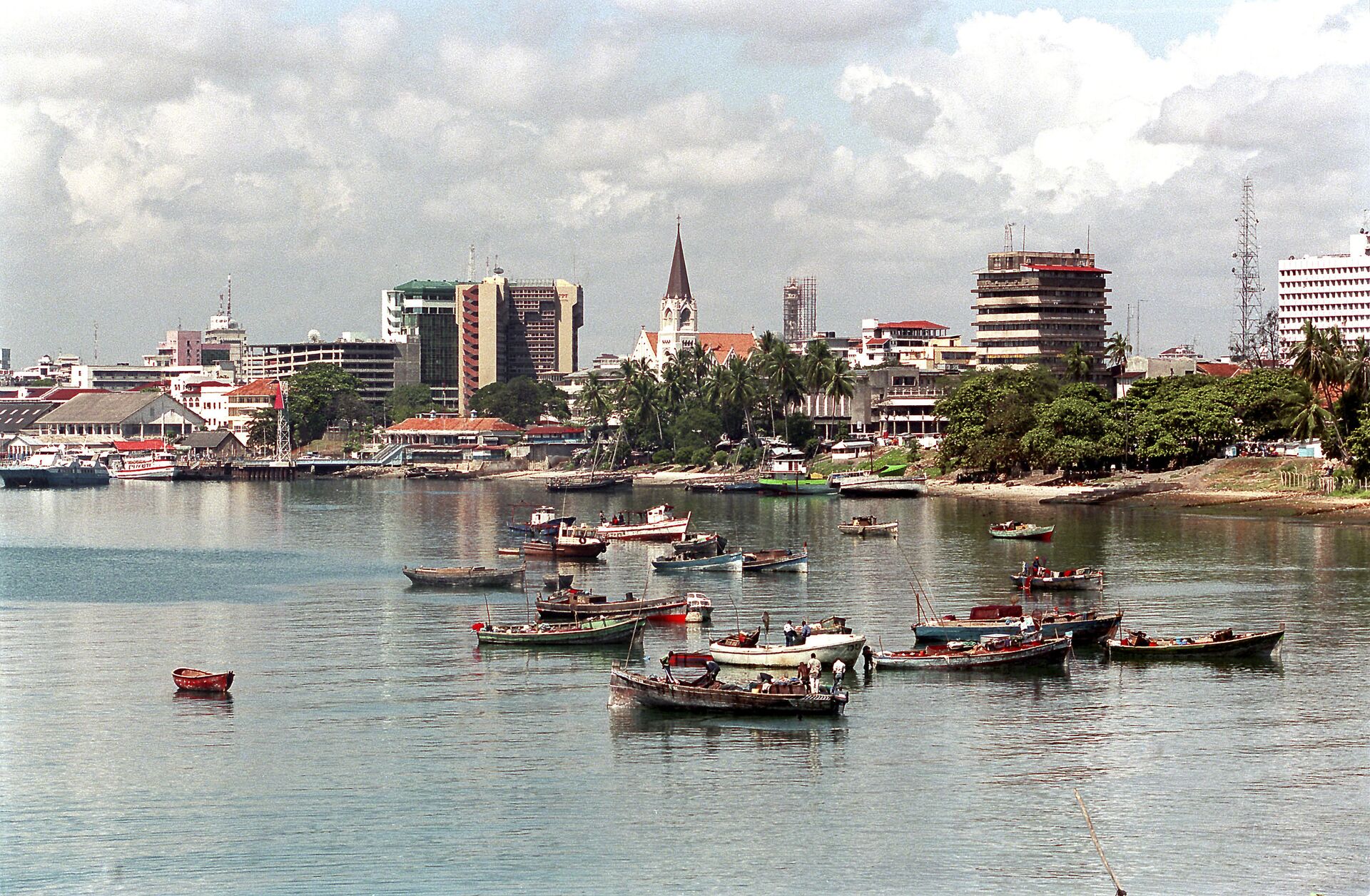
Dar-es-Salaam is a major city and port in Tanzania.
© Sputnik / Dmitry Korobeinikov
/ Combined output from the East African nation’s four hydropower plants plummeted by 86%, to 34 megawatts. Under these circumstances, natural gas is seen as a more reliable source for affordable and uninterrupted electric power. It was reported in late October 2022 that Tanzania was switching to gas power plants due to droughts. About 185 megawatts would be added from gas before the end of 2022, Tanesco vowed.
"A clear correlation exists between electricity consumption per capita and economic growth," Charles Ortel, a Wall Street analyst, investor and investigative journalist, told Sputnik. "Worldwide, fossil fuels are still used to generate a substantial proportion of electricity, particularly in richer nations (as measured by GDP per capita)."
"Telling residents in nations that currently do not generate much electricity and that also do not have basic infrastructure such as clean drinking water, safe sanitation, hospitals, doctors, roads and schools to rely upon daft, unreliable 'green' pipe dreams to hope for long overdue economic growth guarantees devastation and depredation of vast populations who have been locked into poverty for decades, even centuries. In sum, this approach will keep dark continents dark and makes little sense at all," Ortel said.
Remarkably, while Europeans are urging Tanzania to avoid "a lock-in to polluting fossil fuels" to electrify the country, they have no scruples about buying Tanzania's liquefied natural gas (LNG) for their own needs.
Money Waste & Thousands of Dysfunctional Boreholes
While the Norwegian Embassy's proposal to switch Tanzania to renewables raises concerns over potential unsustainability and money waste, Western governments and NGOs have an actual record of humanitarian and environmental projects in Africa that ended in nothing but draining funds.
In March 2009, the International Institute for Environment and Development (IIED) released a report showing that Western governments, NGOs, and donors had spent up to $360 million on rural water supply schemes in Africa that soon became dysfunctional. This equates to approximately 50,000 water points or pieces of infrastructure that were installed and no longer work.
The report cited the fact that water points were often built by donors, governments, and NGOs without consulting local people or arranging maintenance services to keep the boreholes clean and functioning over a sustained period of time.
Roughly 10 years later, a review of a 16-year multi-stakeholder initiative through the Rural Water Supply Network (RWSN) from 2004 to 2020 indicated that "despite a growing recognition of the importance of drilling professionalism, reliable, long-term investment in in-country training and professional development, and addressing challenges in the institutional environment remains inadequate."
Even though access to clean water is named in UN as Sustainable Development Goal (SDG) 6.1, water well drilling and maintenance remain a "marginal issue" for international political leadership, according to the review. As a result, the "water poverty" problem is as acute in Africa as it was decades ago.
The aforementioned projects, albeit sounding appealing, "are way too small," according to Ortel. Even if they were maintained properly, it appeared to be only a temporary water access solution, not a comprehensive one. Serious and well-thought-out plans for building and maintaining the water infrastructure for arid regions demand high-level skills and investments.
On the other hand, the question arises whether money allocated for the boreholes were spent rationally, according to the analyst.
"There is no reliable way to protect vulnerable aid recipients from the charity ghouls who regularly descend upon the poorest nations of earth to divert (steal) aid flows," Ortel warned.
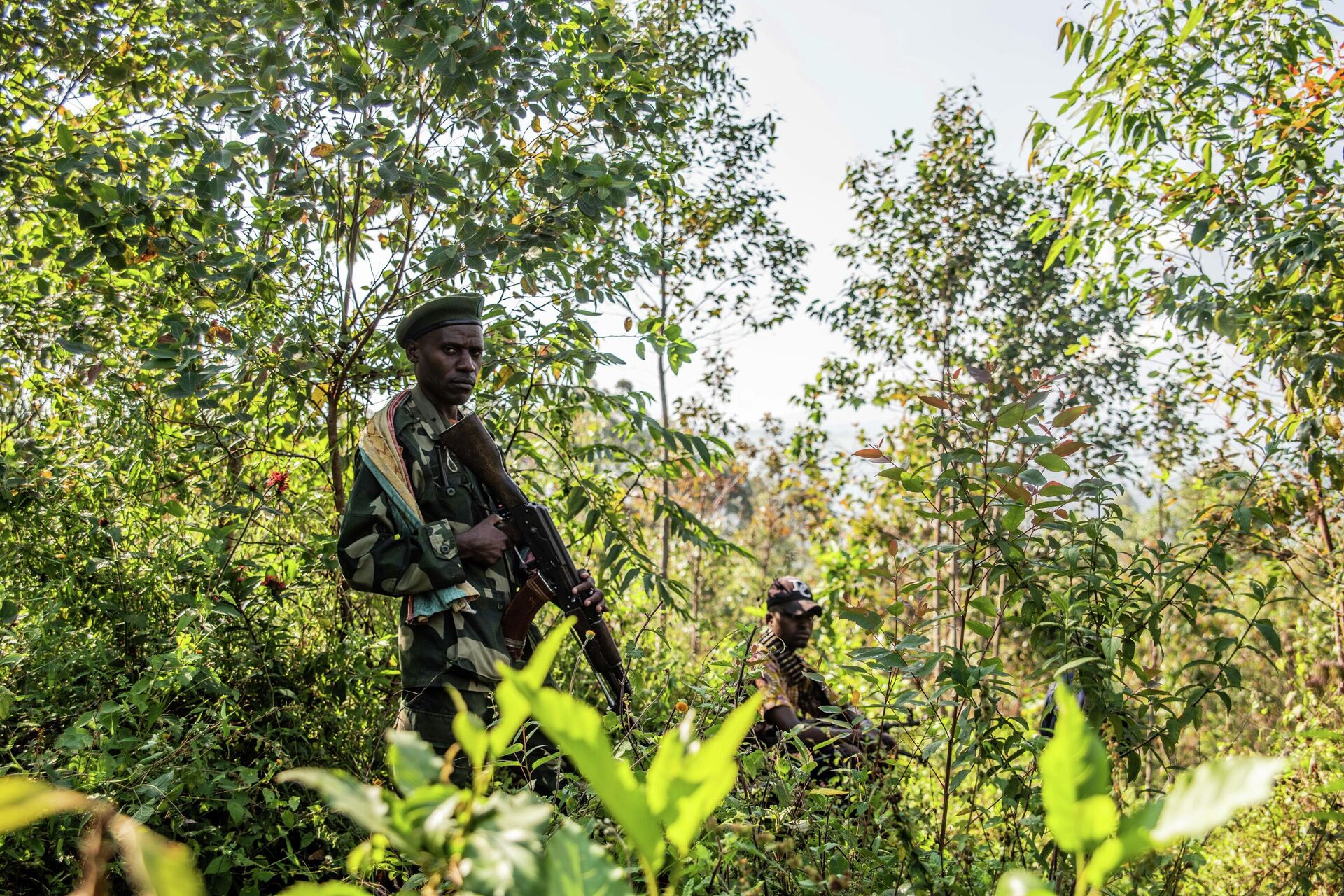
Armed militiamen gather near Rutshuru, 70 kms (45 miles) north of Goma, Democratic Republic of Congo,Wednesday June 22, 2022.
© AP Photo / Moses Sawasawa
Millions Down the Drain: Congo Deforestation
Another glaring example of an inexplicable waste of money was reported by the Norwegian Broadcasting Corporation’s program Dagsrevyen in 2018: Norway had spent NOK 1 billion ($100 million) on saving the rainforest in the Democratic Republic of the Congo, but deforestation only increased.
According to the media, Norwegian taxpayer kroners do not go directly to the DRC, because the latter is considered "corrupt" by the West. First, the funds go to the DRC national forest fund, Fonaredd, governed by a steering committee chaired by the Minister of Finance and administered by the UN Multi-Partner Trust Fund. After that, the money goes to a number of entities such as the World Bank and environmental organizations like the World Wide Fund for Nature (WWF), according to the media. These entities carry out projects with locals on the ground in the DRC. The Norwegian media quoted critics saying that the funds could have been mishandled at some stage of the process. Meanwhile, illegal deforestation went on in the African country.
Still, Norway continued to send taxpayer money to Congo through intermediaries and NGOs, despite making little if any progress in saving the African nation's forests. Norwegian Climate and Environment Minister Ola Elvestuen told the media on May 12, 2018: "Withdrawing will not lead to less deforestation. On the contrary, it will get worse."
All in all, between 2008 and 2018, Norway forked out over NOK 22 billion ($2.2 billion) to several nations in a bid to save their rainforests. It's unclear whether the Norwegian government instrumentalized any oversight mechanism to monitor money flows and took measures to prevent misappropriation of funds. Some critics speculate that the Norwegian authorities' scheme of funding futile projects through the UN and various NGOs could entail "money-laundering" and that it is not only Congo that appears "corrupt" in this respect.
Millions to Charities to Buy Political Influence
In July 2016, Norwegian newspaper Dagbladet questioned Norway’s contributions to the Clinton Foundation, founded by former US President Bill Clinton and having his wife, Hillary, in a key role. The charity runs aid projects in different parts of the world, including Africa.
Norway reportedly masked these contributions by breaking them up into subgroups in order to make the combined sum appear smaller. The Clinton Foundation further split up the donations coming from Norway and listed the overall support as between $10 million and $25 million, while in reality it was considerably higher. Some donations were not reflected on the Clinton Foundation's website at all. These manipulations prompted concerns over alleged embezzlement.
Moreover, the media quoted a Norwegian Agency for Development Cooperation (Norad) internal memo that suggested that Foreign Minister Borge Brende had broken the government’s own foreign aid plan by giving the charity 30 million kroner ($3.03 million) to assist a group of tropical nations in 2015. The problem was that the end recipients of Oslo's donations were not on the foreign aid list approved by the Norwegian government. Remarkably, Brende committed the hefty package in June 2015, after Hillary Clinton officially announced that she would run for president.
The media alleged in 2016 that the Norwegian leadership was buying itself influence, rather than trying to fix acute problems of the Global South. All in all, Oslo funneled over NOK 640 million ($64.8 million at current exchange rate) to the Clintons' charity between 2007 and 2015. At that time, Hillary served as US senator (2001-2009) and as a US secretary of state (2009-2013). After she lost to Donald Trump in November 2016, Norway's contributions to the Clinton Foundation substantially shrank.
"Looking at the public record alone which documents Norway's massive donations to the Clinton Foundation starting by 2004, many must understand that no one yet in Norway is prepared to investigate or to prosecute Norwegian officials for sending large sums to false-front Clinton 'charities' that have actually done substantial damage in many different ways (for example distributing tainted HIV/AIDS drugs) across the not actually developing world," Ortel highlighted.
Renaissance: Industrial Revolution is Brewing in Africa
Europe's Africa policy raises a lot of questions, according to a European entrepreneur with over a decade of experience with work on the African continent, who spoke with Sputnik on condition of anonymity.
According to the businessman, corruption is not actually Africa's "original sin": it was the Western world that brought corruption to the continent. From the very beginning, Western colonizers started to incite violence between African tribes and feed different African warlords to take the continent under control.
Western elites are using a similar approach today, controlling some African regimes either by funneling money to them or using other leverage, including political blackmail. Western countries largely see Africa as their backyard and are seeking to benefit from the continent's natural reserves and human resources.
Africans are well aware that they are being played, according to the entrepreneur, and they are especially irritated by the fact that the West doesn't allow them to use their fossil fuel resources to accelerate the continent's industrialization.
Africa has huge potential and could see rapid growth of its middle class in the coming decades, the businessman noted, adding that Europe and the US are by no means interested in that; hence, their efforts to contain Africa's rise. It's actually criminal, what the West is doing with regard to the African continent, according to him.
Apparently, therefore, while Western multinational corporations are willing to buy Africa's hydrocarbons, rare earth metals, and raw materials, they are reluctant to invest in the continent's own refineries, manufacturing facilities, hi-tech industries, and irrigation infrastructure.
At the same time, European officials are pushing ahead with "clean energy" and "clean water" projects in Africa to build their legacy and climb up the ladder by gaining leadership positions in the UN, World Bank, International Monetary Fund (IMF), and other international structures after their terms as civil servants expire, according to Sputnik's interlocutor.
However, African business leadership and politicians are not sitting on their thumbs, either: there is a growing sentiment among them that it's time to take their fate into their own hands, the entrepreneur noted. He particularly referred to N.J. Ayuk, the chair of the African Energy Chamber, and Rwandan President Paul Kagame, who are calling upon African governments to team up, develop, and build their future together. A new industrial revolution is brewing in Africa, the businessman concluded.

